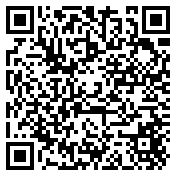Do and Don't around the World
Do and Don't around the World
(Thirawit Praimahaniyom, March 11, 2023)
"Do's and Don'ts" are cultural norms and practices that vary from country to country. Understanding and respecting these norms is essential when traveling or interacting with people from different cultural backgrounds. This essay will define and describe "Do's and Don'ts" around the world, with references to supporting literature.
In Japan, it is customary to remove one's shoes before entering a home or certain buildings. This tradition is rooted in the belief that shoes are considered unclean and should not be worn indoors (Cohen, 2016). Additionally, it is considered impolite to blow your nose in public in Japan (Hinds & Kieser, 2016).
In many Middle Eastern countries, it is important to dress modestly and cover the head and arms when in public, especially for women (Rosen, 2018). In some countries like Saudi Arabia, it is also customary to refrain from public displays of affection (Pasha-Robinson, 2019).
In some cultures, it is customary to greet people with a kiss on the cheek or a hug, while in others, a handshake is more appropriate (Sontag, 2016). For example, in France, it is common to greet acquaintances with a kiss on each cheek, while in the United States, a handshake is more common (Choi, 2018).
In Thailand, it is customary to show respect for the monarchy and avoid speaking negatively about the royal family (Banyan, 2016). Additionally, it is important to avoid touching someone's head, as it is considered the most sacred part of the body (Cooper, 2018).
In China, it is customary to avoid discussing sensitive political topics, such as human rights or Tibet (Yu, 2017). Additionally, it is impolite to leave food on your plate, as it suggests that you did not enjoy the meal (Fang, 2017).
In India, it is customary to remove shoes before entering a temple or any religious places (Kshetri, 2018). Additionally, it is impolite to use your left hand for eating or shaking hands, as it is considered unclean (Tandon, 2018).
In Russia, it is customary to remove gloves when shaking hands (Karpova, 2017). Additionally, it is important to avoid smiling at strangers, as it can be interpreted as insincere or suspicious (Larson, 2017).
In many African countries, it is customary to greet people with a handshake, but it is important to use the right hand, as the left hand is considered unclean (Murray, 2018). Additionally, it is important to dress modestly and respect local customs when visiting religious sites.
In Brazil, it is customary to use a "thumbs up" gesture to signal agreement or approval, while in some Middle Eastern countries, this gesture can be seen as offensive (Robbins, 2017). Additionally, it is important to avoid discussing sensitive topics, such as politics or religion, unless you know the person well.
In conclusion, understanding and respecting cultural norms and practices is essential when interacting with people from different backgrounds. This includes understanding customs around greetings, dress, and behavior, as well as avoiding sensitive topics and showing respect for local traditions. By being mindful of cultural differences, travelers can avoid misunderstandings and build positive relationships with people from around the world.
References:
Banyan. (2016). Thailand's new king: The untested monarch. The Economist. Retrieved from https://www.economist.com/asia/2016/12/03/thailands-new-king-the-untested-monarch
Choi, C. Q. (2018). How do people greet each other aroundthe world? Here's your ultimate guide. National Geographic. Retrieved from https://www.nationalgeographic.com/travel/features/how-do-people-greet-each-other-around-the-world/
Cohen, D. (2016). Taking off your shoes in Japan. The New York Times. Retrieved from https://www.nytimes.com/2016/07/10/travel/japan-shoes-etiquette.html
Cooper, S. (2018). Thailand travel tips: Dos and don'ts when visiting the Land of Smiles. The Independent. Retrieved from https://www.independent.co.uk/travel/asia/thailand-travel-tips-dos-and-donts-etiquette-culture-a8398731.html
Fang, C. (2017). 15 things you should never do in China. Business Insider. Retrieved from https://www.businessinsider.com/what-not-to-do-in-china-2017-11
Hinds, P., & Kieser, J. A. (2016). The dos and don'ts of international business etiquette. Harvard Business Review. Retrieved from https://hbr.org/2016/07/the-dos-and-donts-of-international-business-etiquette
Karpova, A. (2017). 7 dos and don'ts when visiting Russia. CNN Travel. Retrieved from https://www.cnn.com/travel/article/russia-dos-donts/index.html
Kshetri, S. (2018). 10 things you need to know before visiting India. Forbes. Retrieved from https://www.forbes.com/sites/sarikashetri/2018/08/13/10-things-you-need-to-know-before-visiting-india/?sh=242820f179a6
Larson, K. (2017). Culture shock: Dos and don'ts in Russia. Russia Beyond. Retrieved from https://www.rbth.com/travel/2017/08/15/culture-shock-dos-and-donts-in-russia_819612
Murray, J. (2018). 10 dos and don'ts when visiting African countries. Culture Trip. Retrieved from https://theculturetrip.com/africa/articles/10-dos-and-donts-when-visiting-african-countries/
Pasha-Robinson, L. (2019). Public displays of affection are illegal in Saudi Arabia - here's how to avoid getting into trouble. The Independent. Retrieved from https://www.independent.co.uk/travel/middle-east/saudi-arabia-public-displays-affection-kissing-hugging-illegal-how-to-avoid-trouble-a9058201.html
Robbins, M. (2017). How to avoid cultural faux pas when traveling. Forbes. Retrieved from https://www.forbes.com/sites/michaeljrobbins/2017/07/05/how-to-avoid-cultural-faux-pas-when-traveling/?sh=5ec8c5c22a10
Rosen, M. (2018). What to wear in the Middle East: Dos and don'ts. Travel + Leisure. Retrieved from https://www.travelandleisure.com/trip-ideas/middle-east-travel/what-to-wear-in-the-middle-east
Sontag, D. (2016). The ultimate guide to international gestures. CNN Travel. Retrieved from https://www.cnn.com/travel/article/international-gestures-guide/index.html
Tandon, N. (2018). Indian etiquette: Do's and don'ts in India. Culture Trip. Retrieved from https://theculturetrip.com/asia/india/articles/indian-etiquette-dos-and
โปรแกรมวิชาภาษาอังกฤษ คณะครุศาสตร์ มหาวิทยาลัยราชภัฏกำแพงเพชร. (2566). Do and Don't around the World. สืบค้น 28 กุมภาพันธ์ 2569, จาก https://edu.kpru.ac.th/english/?lang=TH&page_id=352


